
Article • Information channel
Digital pathology special
From glass slides to the realm of ones and zeros: Digitising pathology offers many benefits to the specialty. Read our information channel for some of the most exciting applications.

From glass slides to the realm of ones and zeros: Digitising pathology offers many benefits to the specialty. Read our information channel for some of the most exciting applications.

As Artificial Intelligence continues to impact on the development of digital pathology, potential users are still slow to implement key enabling technologies to harness the benefits, according to Dr David McClintock, who will detail critical steps for pathology departments to transition practice from glass (analogue) to digital (whole slide imaging) and embrace AI, to the 6th Digital Pathology…
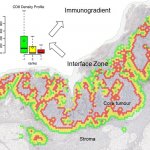
Spatial analytics offers greater clarity in the assessment of tumours beyond routine microscopic analysis. High-capacity digital image analysis enables new methods of spatial statistics to extract features not immediately distinguishable by visual inspection. These subvisual features reflect complex properties, such as intratumour heterogeneity and have the additional benefit that they can target…

Hamamatsu Photonics understand the benefits and challenges of whole slide imaging systems. For over 15 years, we have been working to deliver robust and reliable scanners with optimal image quality. Our NanoZoomer whole slide scanner series quickly transform entire histology and cytology glass slides into diagnostic-quality digital images for duplication, annotation, storage, retrieval, and image…

New techniques of infrared-based technology are showing strong potential for cost-effective tissue analysis. Peter Gardner, Professor of Analytical and Biomedical Spectroscopy at the University of Manchester, outlined how hyperspectral imaging coupled with sophisticated computer algorithms can identify and grade cancerous tissue, as well as offer an indication of prognosis. The technique, he…

The anatomical pathologist faces a crisis. Public and private labs suffer increasing caseloads, whilst pathologist numbers diminish for various reasons, including greater cancer prevalence associated with aging populations as well as improved cancer screening programs. Precision medicine typically involves more genetic testing and extensive use of immunohistochemistry to classify cancer and…

On the occasion of this year's World Sepsis Day, we spoke with Elena Sukhacheva, Ph.D., director of medical and scientific affairs at Beckman Coulter, about the status quo and outlook on sepsis diagnostics. With the severity of sepsis symptoms, it’s easy to comprehend why it is invaluable to diagnose this disease properly and in a timely manner. Dr Sukhacheva takes an in-depth look at…

As COVID-19 continues to spread, bottlenecks in supplies and laboratory personnel have led to long waiting times for results in some areas. In a new study, University of Illinois, Urbana-Champaign researchers have demonstrated a prototype of a rapid COVID-19 molecular test and a simple-to-use, portable instrument for reading the results with a smartphone in 30 minutes, which could enable…

Medical device approved 3-D printers are producing clinically safe and effective nasopharyngeal swabs for COVID-19 testing. A nasal swab may seem rudimentary, but is essential for testing COVID-19. Diagnostic test kits and components – nasal swabs, collection vials, and chemical reagents – have been in short supply worldwide, especially in March. Ironically, nasopharyngeal swabs are…
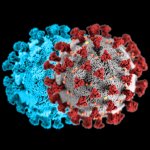
The SARS CoV-2 virus which causes COVID-19 may have been named prematurely. As more has become known about the infection, the severe disease does not appear to be a respiratory syndrome at all. Patients who only have a respiratory illness tend not to have a severe condition, while patients who develop a severe condition tend to have non-respiratory conditions, primarily thrombotic or hyper-immune…
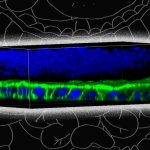
Several thousand strains of bacteria live in the human gut. Some of these are associated with disease, while others have beneficial effects on human health. Figuring out the precise role of each of these bacteria can be difficult, because many of them can’t be grown in lab studies using human tissue. This difficulty is especially pronounced for species that cannot live in oxygen-rich…
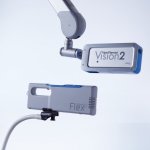
The VeinViewer® uses harmless near-infrared (NIR) light which is directed towards the patient’s skin. Haemoglobin in the blood absorbs the NIR and the surrounding tissue reflects it back to the VeinViewer® device, where the data is processed into an image, colour is added and the image sent back to the skin to provide a real time visualization of the blood vessels and patterns up to 10mm…

In recent years, technological and regulatory advances have made digital pathology a viable alternative to the conventional microscope. The obtention of a digital replica of the traditional glass slide and its use for primary diagnosis has revolutionized pathology and is shaping the future of the discipline. A digital pathology lab uses digital histology slides for routine diagnosis, and these…

Researchers have developed a novel three-dimensional imaging system to diagnose cervical cancer faster, non-invasively and more efficiently than conventional methods.
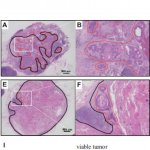
A group of researchers led by Osaka University established a new pathological grading system to evaluate the therapeutic effect of neoadjuvant chemotherapy (NAC) for metastatic lymph nodes (LNs) removed in esophageal cancer (EC) surgery, demonstrating that the system predicts recurrence and prognosis in EC patients better than conventional systems. Their research results were published in Annals…
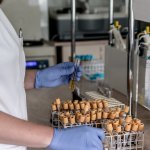
Using a simple urine test alongside routine imaging for patients with adrenal masses could speed up adrenal cancer diagnosis, improving patient’s prognosis and reducing the need for invasive diagnostic procedures, a new multi-centre study has found.
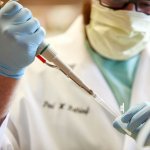
Airborne and potentially deadly, the virus that causes COVID-19 can only be studied safely under high-level biosafety conditions. Scientists handling the infectious virus must wear full-body biohazard suits with pressurized respirators, and work inside laboratories with multiple containment levels and specialized ventilation systems. While necessary to protect laboratory workers, these safety…

At around 30.5 percent, breast cancer is the most common cancer among women in countries of the industrialized world. The number of cases has doubled since the 1980s: about 69,000 times a year women are diagnosed with breast cancer. Triple-negative breast cancer is a particularly aggressive form of breast cancer. As important receptors are missing here, treatment options and prognosis for such…
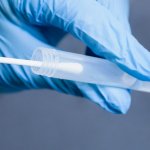
EKF Diagnostics, the global in vitro diagnostics company, announces that it has added a novel viral transport media for the safe sample handling and testing of multiple infectious diseases from a single swab to its product range.
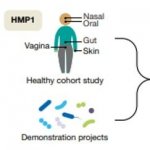
The human species maintains symbiotic relationships with a multitude of microbial organisms that colonise the inside as well as the surface of the body. Scientists, for a long time, underestimated the significance of these organisms for humans.

Nanoelectronics and digital technologies R&D and innovation hub Imec recently received NASA funding to test a new technology in a gravity-free environment. Eventually, this will enable astronauts to perform blood tests to monitor their health. We discussed the project and technology with Nicolas Vergauwe, CEO of miDiagnostics, the Leuven firm that developed the diagnostic device, and Susana B…

Following success of telepathology in the eastern region of Quebec, the service is set to be further expanded across its remote areas. There are also moves towards a fully digital service at some sites, to introduce tele-autopsy into remote regions and extend the geographical coverage further across the region. The latest developments were outlined at the Digital Pathology and AI Congress in…

To investigate rare diseases, applying image-based analytics approaches, including the use of deep learning convolutional neural networks (DL-CNNs), can be a major challenge due to great difficulties in acquiring sufficient numbers of cases and associated digital image sets from the small cohorts typically available. To realise algorithms that are both effective and generalisable, conventional…
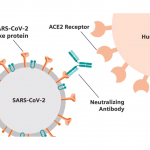
Public Health England, in partnership with the University of Oxford, recently conducted a head-to-head evaluation of four commercial immunoassay tests available in the UK and used for the detection of SARS-CoV-2 antibodies.

Hamamatsu Photonics invites you to join us for a panel discussion with pathologist Matthew Hanna, MD and IT Manager Nikolas Stathonikos on Thursday, 9 July at 17:00 CET. In this rapidly evolving healthcare landscape triggered by COVID-19, pathology, and remote diagnosis have been elevated to critical topics. These two experts, representing both the clinical and information technology areas, will…